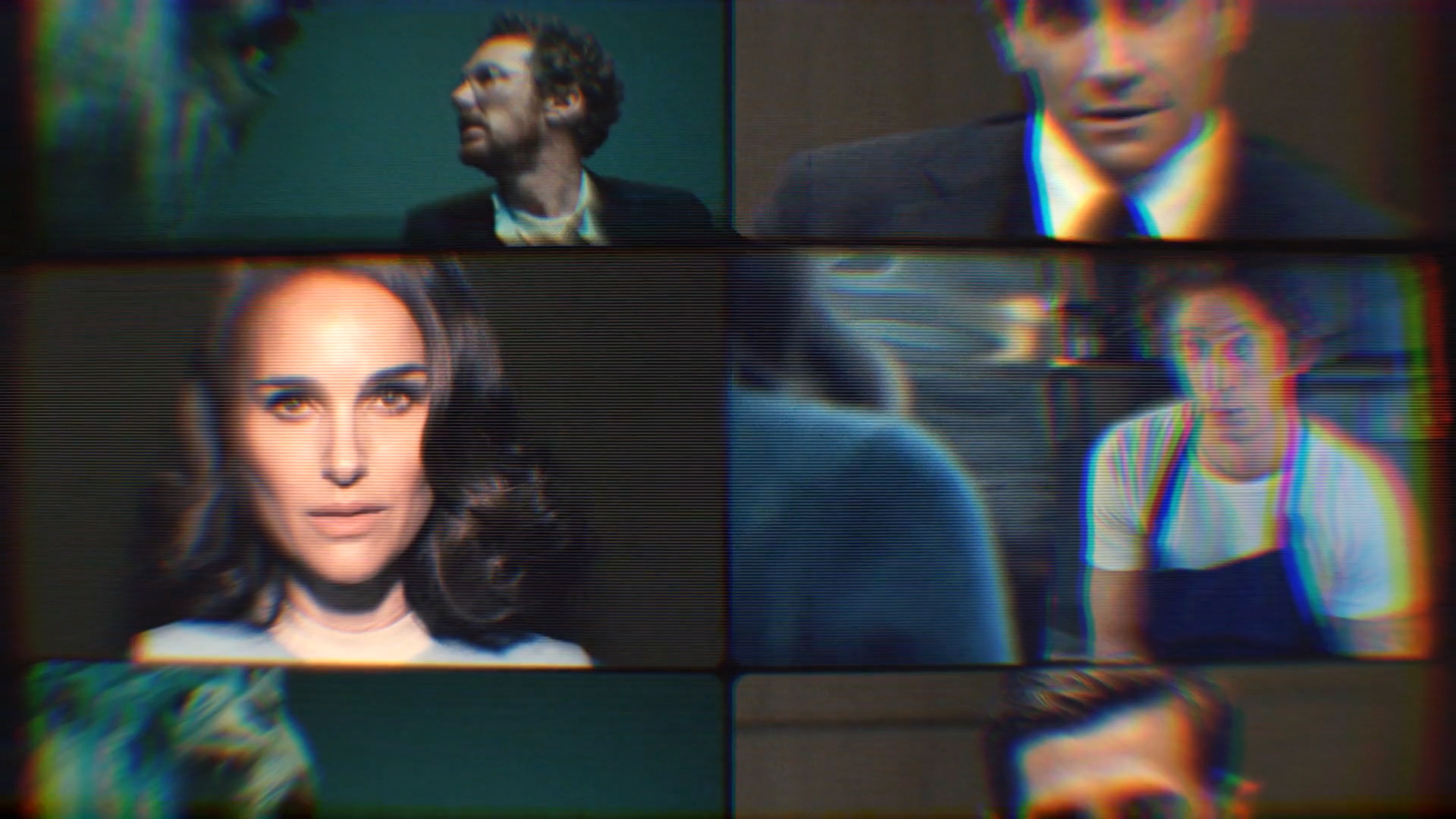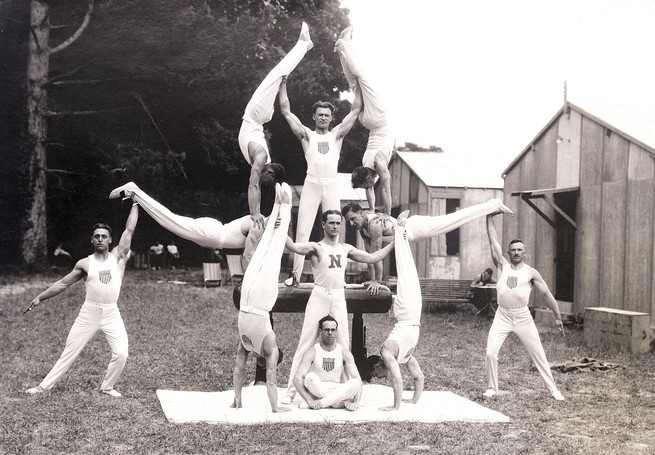A Comedian Who Delivers Rapid-Fire Laughs
6 min read
This is an edition of The Atlantic Daily, a newsletter that guides you through the biggest stories of the day, helps you discover new ideas, and recommends the best in culture. Sign up for it here.
Welcome back to The Daily’s Sunday culture edition, in which one Atlantic writer or editor reveals what’s keeping them entertained. Today’s special guest is Stef Hayes, The Atlantic’s deputy research chief, who has written about a novel that has a healthy dose of skepticism about true crime, the story behind the Oxford English Dictionary’s creation, and Ottessa Moshfegh’s riveting meta-mysteries.
Stef is counting down the days until she can see world-class jiu-jitsu athletes fight near Las Vegas. She has been watching The Sopranos for the first time—she’s a defender of Dr. Melfi—and recommends a trip to the Whitney Museum of American Art for anybody seeking some whimsy.
First, here are three Sunday reads from The Atlantic:
- Inside U.S. cricket’s shocking victory
- All airlines are now the same.
- David Frum: The Harris gamble
The Culture Survey: Stef Hayes
Something I recently rewatched: Jacqueline Novak’s Netflix special, Get on Your Knees—for the third time in about as many months. The 90-minute show is ostensibly about Novak’s teenage quest to give a blow job, but it’s really about the ways in which language falls short in conveying meaning and, ultimately, the power of perspective. That message is delivered in what must be the highest words-per-minute (and laughs-per-minute) rate of any comedy special. The whole thing is so tightly woven and flawlessly delivered that I catch new lines each time I watch.
The upcoming event I’m most looking forward to: Every two years, jiu-jitsu fans tune in to the Olympics of submission grappling, hosted by the Abu Dhabi Combat Club: the ADCC World Championship. Since it launched, in 1998, the event has brought together stars of the sport for some really memorable matches. But next month, things are getting extra spicy: The most beloved troll in jiu-jitsu, the Aussie black belt Craig Jones, has created a competing event to try to promote better pay across the sport and bring in some new spectators. The Craig Jones Invitational (CJI) will be held just a couple of miles away from ADCC on the same weekend.
Jones has already lured some big names (and former champions) away from ADCC with the promise of a staggering $1 million in prize money for division winners. ADCC pays the men’s-division winners $10,000; CJI is offering $10,001 just for participating. The extra dollar, “that’s from me personally,” Jones joked on The Joe Rogan Experience. (Frustratingly, and unlike ADCC, CJI has no women’s divisions.) The brackets for both events are stacked, but the real showdown of the weekend will be CJI versus ADCC. [Related: The martial art I can’t live without]
The last museum or gallery show that I loved: Earlier this year, I saw the “Ruth Asawa Through Line” exhibition at the Whitney Museum of American Art, in New York City. I had mostly known Asawa for her mesmerizing looped-wire sculptures, and I came away amazed by the range and playfulness of her drawings. But I can’t leave the Whitney without spending a solid half hour in the room devoted to Calder’s Circus. From 1926 to 1931, Alexander Calder created a toy-size circus troupe out of household materials—wire, wood, corks, yarn, pipe cleaners—and toured it for decades, operating the figures by hand and doing the sound effects himself. Among his crew are a ringmaster, acrobats, a sword-swallower, a strongman in leopard print who hoists a barbell, and (my favorite) a pair of stretcher-bearers who rush in to collect injured performers. The Whitney displays the original sculptures along with a film of one of his performances, which is so cheeky and inventive that it makes me laugh every time.
An author I will read anything by: Katie Kitamura. Kevin Wilson. Hilton Als. Rachel Aviv. And our very own Jen Senior and Sophie Gilbert.
The television show I’m most enjoying right now: These past few months, I’ve been watching The Sopranos for the first time—only a quarter century late. I’ve heard that some Sopranos fans skip the scenes with Dr. Melfi, Tony Soprano’s therapist, which feels completely blasphemous. Whenever the violence gets monotonous or the momentum lags, the Melfi scenes lure me back in. I love that the show doesn’t just use her to deepen Tony’s character; it also peeks into her psyche, showing her professionalism crack at points during their sessions and her visits to her own therapist. [Related: David Chase just ruined the finale of The Sopranos.]
An online creator that I’m a fan of: Only Pierce Abernathy could make me want to use four types of squash and every part of a leek. His videos are perfectly paced, and his style is *chef’s kiss*.
Best novel I’ve recently read, and the best work of nonfiction: I recently picked up The Other Olympians,by Michael Waters, which follows a couple of elite athletes who publicly transitioned in the 1930s, and explores the bureaucracy behind the sex-testing policies that followed. It’s deeply researched, utterly readable, and revelatory. [Related: Seven books that will change how you watch the Olympics]
As for fiction: Vladimir,by Julia May Jonas. How is this a debut novel? I was immediately drawn in by the assured voice and sharply funny observations of the narrator, a 58-year-old literature professor whose husband, the chair of the department, is facing a Title IX investigation for past relationships with students. Jonas writes so well about the ways her narrator’s desires—for sex, acclaim, carbs—brush up against her awareness of her own aging. As the narrator seeks refuge in her fantasies, the book becomes brilliantly unhinged.
The Week Ahead
- Harold and the Purple Crayon, a fantasy-comedy film about a boy who uses his magical purple crayon to draw himself out of a book and into the real world (in theaters Friday)
- A Good Girl’s Guide to Murder, a mystery series about a student hunting down the killer of a 17-year-old girl (premieres Thursday on Netflix)
- Someone Like Us, a novel by Dinaw Mengestu in which the son of Ethiopian immigrants digs into his family’s hidden past (out Tuesday)
Essay

This Bad-Vibes-TV Moment Needs to End
By Sophie Gilbert
First came a 40-minute, mostly wordless episode of television that seemed designed to replicate a character’s traumatized, fracturing psyche. Second: a courtroom procedural punctuated with bizarre dream sequences and misleading fantasies. Then a prestige series threw in a Freudian vision of a character having sex with his own mother. Lately, TV has felt to me like one long bad trip, a season of moody episodic rhapsodies that eschew the conventional architecture of narrative for something more subliminal, and more disturbing.
Read the full article.
More in Culture
- Kamala Harris and the threat of a woman’s laugh
- The brat-ification of Kamala Harris
- These Millennials can’t get out of their head.
- Seven books that will change how you watch the Olympics
- Eight books that will inspire you to move your body
- How do you solve a problem like Norman Mailer?
- Deadpool & Wolverine won’t change your mind.
- What Shannen Doherty understood about Brenda Walsh
Catch Up on The Atlantic
- David Frum: The dramatic contrast of Biden’s last act
- This is exactly what the Trump team feared.
- J. D. Vance’s insult to America
Photo Album

Take a look at these photos from a century ago at the 1924 Summer Olympics, hosted in Paris, France.
Explore all of our newsletters.
When you buy a book using a link in this newsletter, we receive a commission. Thank you for supporting The Atlantic.



